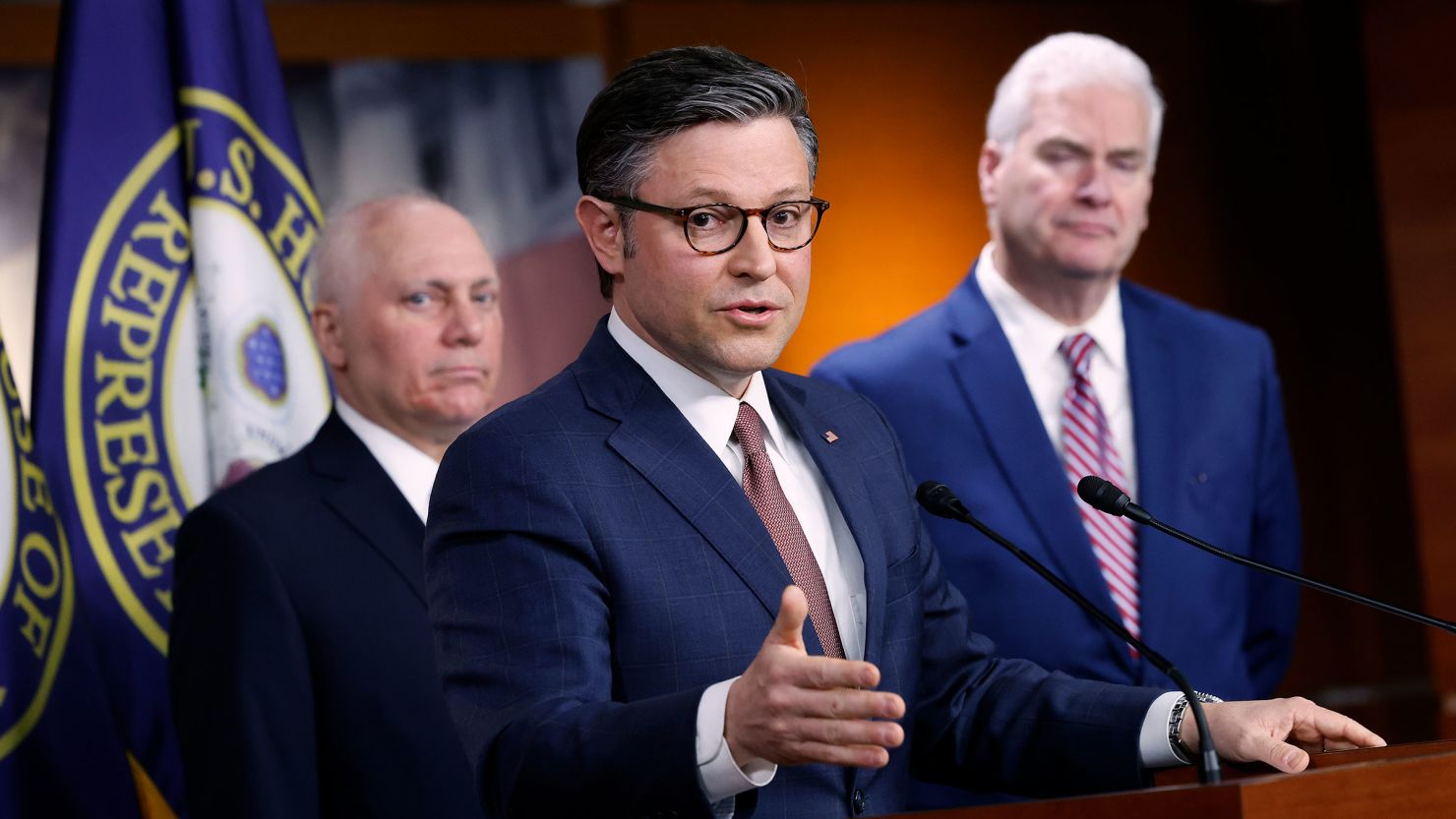
In Short
- Biden signed a comprehensive funding package to avoid a government shutdown.
- The house and senate are working on consensus for swift adoption.
- Critical government agencies are covered in the funding.
TFD – Discover the intricacies of President Biden’s funding package and how it prevented a potential government shutdown. Stay updated with TheFoxDaily for more insights.
After months of budget battles on Capitol Hill, the House is scheduled to vote on Friday on whether to approve important federal spending legislation before the day’s end shutdown deadline.
Fears of a possible partial shutdown at midnight on Friday have been raised by the short notice, but top legislators from both parties say they are working to avert that.
A number of crucial government agencies are covered by the measure, including the legislative branch, the departments of State, Defense, Homeland Security, Labor, Health and Human Services, and Education.
The legislation would next move to the Senate, where senators would need to come to a consensus in order to expeditiously adopt it, if the House passes it as anticipated. A temporary funding lapse would occur, leading to a partial shutdown, if the legislation has not been passed by both chambers of Congress by the deadline. A partial shutdown would have less of an effect if money was authorized over the weekend before the workweek began.
As of Thursday night, top House Republicans expected they’ll have the votes to pass the spending package – but it could be close. Senior GOP sources claim that since the package needs a two-thirds majority to pass, Democrats will have to support it despite opposition from some members of the House GOP Conference.
The GOP aims to gain a majority of their conference on every vote, but it’s still uncertain if they can accomplish this crucial goal.
Just before three in the morning ET on Thursday, lawmakers presented the $1.2 trillion federal financing proposal, which is over 1,000 pages long.
Chuck Schumer, the majority leader in the Senate, stated on Thursday that the legislative package’s text was received “just in time,” since there were less than 48 hours remaining before a partial government shutdown was due. “Now Congress must now race to pass this package before government funding runs out this Friday,” the Democratic leader continued. Once the House acts, the Senate will need bipartisan cooperation to pass it before Friday’s deadline and avoid a shutdown,” a reference to how any one senator could slow passage of the bill and launch a partial shutdown.
Congress eventually approved a bundle of six bills in early March to finance a number of government departments for the remainder of the fiscal year, ending months of averting shutdowns at the last minute with stopgap measures.
The annual federal funding process, which has taken far longer than usual due to partisan policy differences and a historic change in House leadership following conservatives’ unprecedented vote to remove former Speaker Kevin McCarthy last year, must now be completed by lawmakers in order to fund the rest of the government.
Following McCarthy’s removal from office, Speaker Mike Johnson emerged victorious, but he now faces a razor-thin majority and criticism from his right flank regarding how he handled the battle over government spending.
Johnson outlined the conservative gains in the package and hailed the bill early on Thursday morning.
“This FY24 appropriations legislation is a serious commitment to strengthening our national defense by expanding support for our brave men and women who serve in uniform and moving the Pentagon toward a focus on its core mission,” Johnson said in a statement.
A source of contention within the House GOP conference, the Louisiana Republican will need to depend on votes from both Democrats and Republicans to pass the remaining government funding measures.
Progressives and far-right members of the House criticized the law for different reasons as they sparred over the deal on Thursday.
Republican Representative Chip Roy of Texas told CNN that leadership “owns the bill” and that he will not support any other Republicans who vote in favor of it, calling it a “failure.”
He said to CNN’s Manu Raju, “I would have a very difficult time doing that.” “If this bill passes, the Republican conference is a failure.”
Progressive members of the House have also expressed disapproval, with some saying they will vote against it due to provisions that would halt funding to the UN Relief and Works Agency for Palestine Refugees for a year due to allegations that UNRWA staff members were involved in the attack against Israel on October 7.
Johnson’s speakership may face a comparable threat in light of McCarthy’s demise, but many Republicans have made it plain that they do not want another speakership in light of the severe division and mayhem that McCarthy’s departure caused.
The departments of Agriculture, Commerce, Justice, Veterans Affairs, Energy, Interior, Transportation, Housing and Urban Development, Food and Drug Administration, and other federal programs were all funded by the separate six-bill funding package that President Joe Biden signed into law earlier this month.
Conclusion
The successful passage of the funding package highlights the importance of bipartisan cooperation in governance. Stay tuned for further developments in federal spending and legislative processes.
Connect with us for the Latest, Current, and Breaking News news updates and videos from thefoxdaily.com. The most recent news in the United States, around the world , in business, opinion, technology, politics, and sports, follow Thefoxdaily on X, Facebook, and Instagram .
